

Good morning ☀️
Difficulties within Africa’s economic landscape have raised questions about the feasibility of building successful startups on the continent.
Iyin Aboyeji, a Nigerian entrepreneur who co-founded two companies valued at over $1 billion before the age of 30, is now a prominent startup investor.
Iyin is one of the featured speakers at Moonshot 2024, joining other innovators and industry leaders working on groundbreaking solutions to Africa’s most pressing challenges.
You can listen and learn from Iyin’s journey at Moonshot 2024. Get your tickets here.

Startups
Inside Mira’s new all-in-one hardware

In Zero to One, Peter Thiel argues that founders should test their hypotheses in the real world.
Mira, a Nigerian fintech which launched in 2024, aims to change how restaurants handle food orders. With Mira, users would scan a QR code, check out a list of meals, and pay through any medium of choice. Restaurants can also receive these orders on any device.
When the product went out into the world, Mira learned that restaurants wanted a familiar system. This informed the launch of Mira Register, an all-in-one device that allows restaurants to track customer orders and manage other internal business processes.
Mira claims its unique approach to building products sets it apart from competitors.
The startup uses a hybrid approach that allows restaurants to operate the product with minimal internet connection. The startup is benefiting from founder Ted Oladele’s experience building great startups at Flutterwave.
As founder, Ted Oladele sees Mira Register as the startup’s opportunity to enter the hospitality industry. The CEO is also optimistic about capturing a 10% market share in Nigeria’s saturated POS sector using Mira Register. Already, it has processed over $500,000 in transactions since launch and serves several well-known SMEs like Asheluxe, Grey Matter, and The Vault.
Read Moniepoint’s 2024 Informal Economy Report
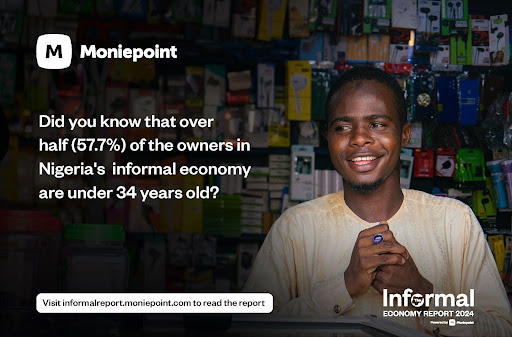
Did you know that 57.7% of the business owners in Nigeria’s informal economy are under 34 years old? Click here to find out more about the demographics of Nigeria’s informal economy.
Economy
Zimbabwe backs its currency with $190 million
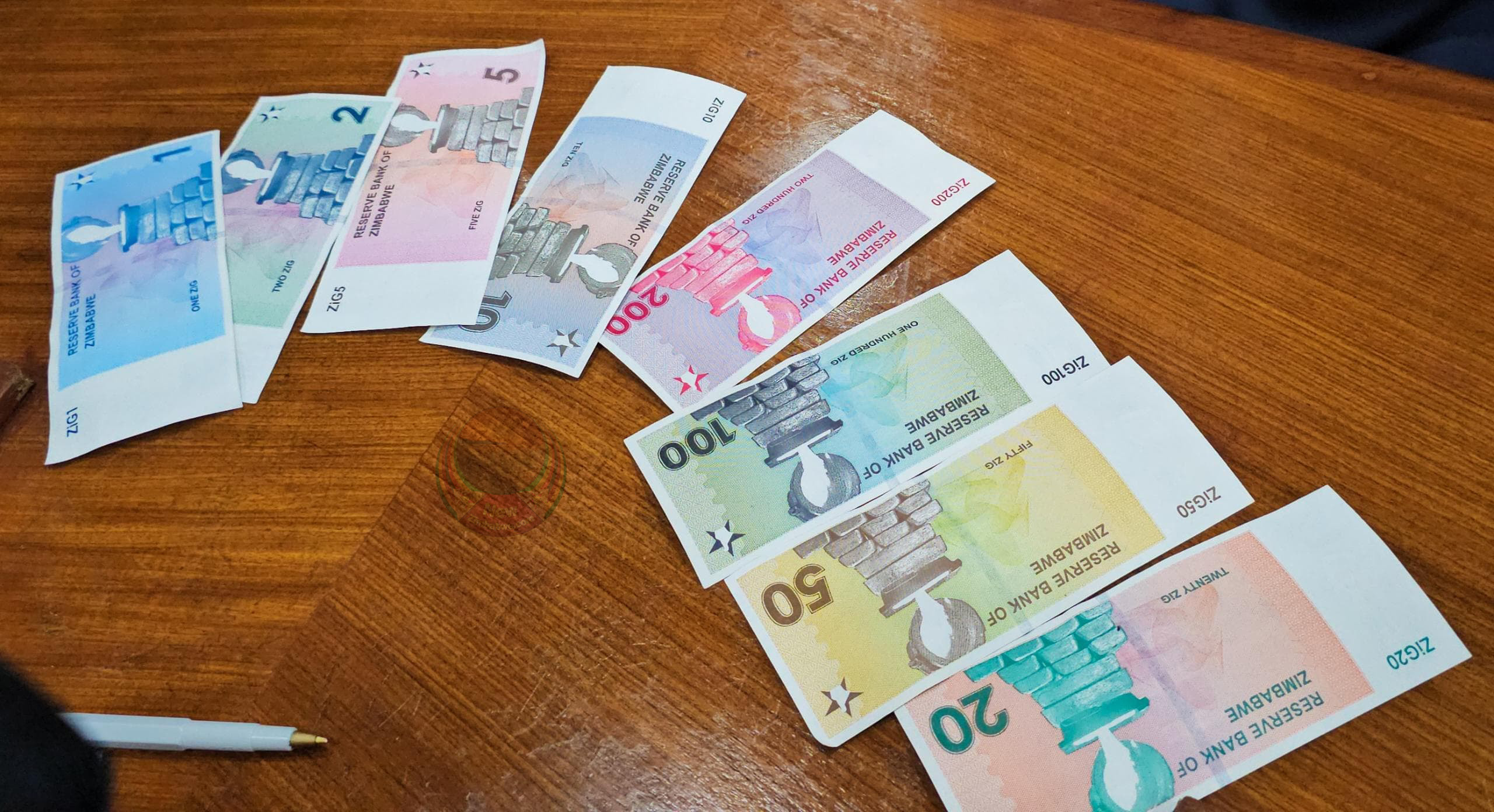
Like most African countries struggling with rising import costs, declining export prices, and high inflation, Zimbabwe has taken steps to shore up foreign currency to help increase demand for its domestic currency, the ZiG. So far, the country has spent $190 million doing this.
The Reserve Bank of Zimbabwe said it was using 50% of the foreign exchange proceeds which it collects from exporters to back its new gold-backed currency. In July, Zimbabwe pumped $50 million into the market to support the ZiG.
“If we have forex demand that can’t be met by voluntary liquidations, the central bank must step in. It has the reserves,” Persistence Gwanyanya, a member of the Reserve Bank’s monetary policy committee said in an interview.
In July, Bloomberg reported that Zimbabwe has about $370 million in reserves. The apex bank has said interventions in the interbank market will be “a permanent feature”.
Zimbabwe is not the only African country that is aggressively buying foreign currency to support its domestic currencies. South Sudan, Mauritius, Nigeria and Zambia have together spent at least $1 billion since July to defend their currencies. Rising import costs, declining export prices, and high inflation have triggered this more-than-usual intervention by these central banks.
Collect payments anytime anywhere with Fincra
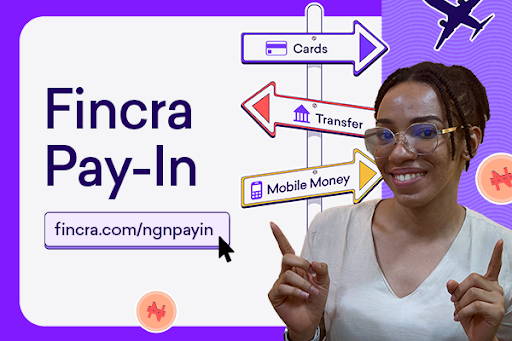
Are you dealing with the complexities of collecting payments from your customers? Fincra’s payment gateway makes it easy to accept payments via cards, bank transfers, virtual accounts and mobile money. What’s more? You get to save money on fees when you use Fincra. Get started now.
Telcos
Nigeria to fine telcos for poor services

The Nigerian Communications Commission (NCC), the country’s telecoms watchdog has made it compulsory for telcos to pay a default fine of ₦5 million ($3,100) if they fail to meet the benchmarked Quality of Service (QoS) scores. An additional ₦500,000 ($315) will also be charged for periods of continuous downtime.
To calculate QoS, telcos are judged on three metrics. The first two are closely related: they need to ensure that at least 98% of all calls connect successfully, which means keeping failed connections to under 2%.
The third metric focuses on their ability to handle customer needs, requiring telcos to meet both voice and data demands by customers.
However, this default fine is coming when telcos are having a hard time in Nigeria. Telcos are having to deal with high operating costs due to the ailing naira, high price of diesel, government-imposed taxes, and vandalised infrastructure which cost them ₦14.6 billion ($9.2 million) to fix in 2023. Coincidentally, these vandalisms are the major causes of the downtimes telcos face.
These new fines may seem like even more trouble for telcos but there’s good news on the horizon. The Nigerian government is planning to issue a 10-year jail term for vandals who are nabbed in fibre optic vandalism cases.
Paystack Virtual Terminal is now live in more countries
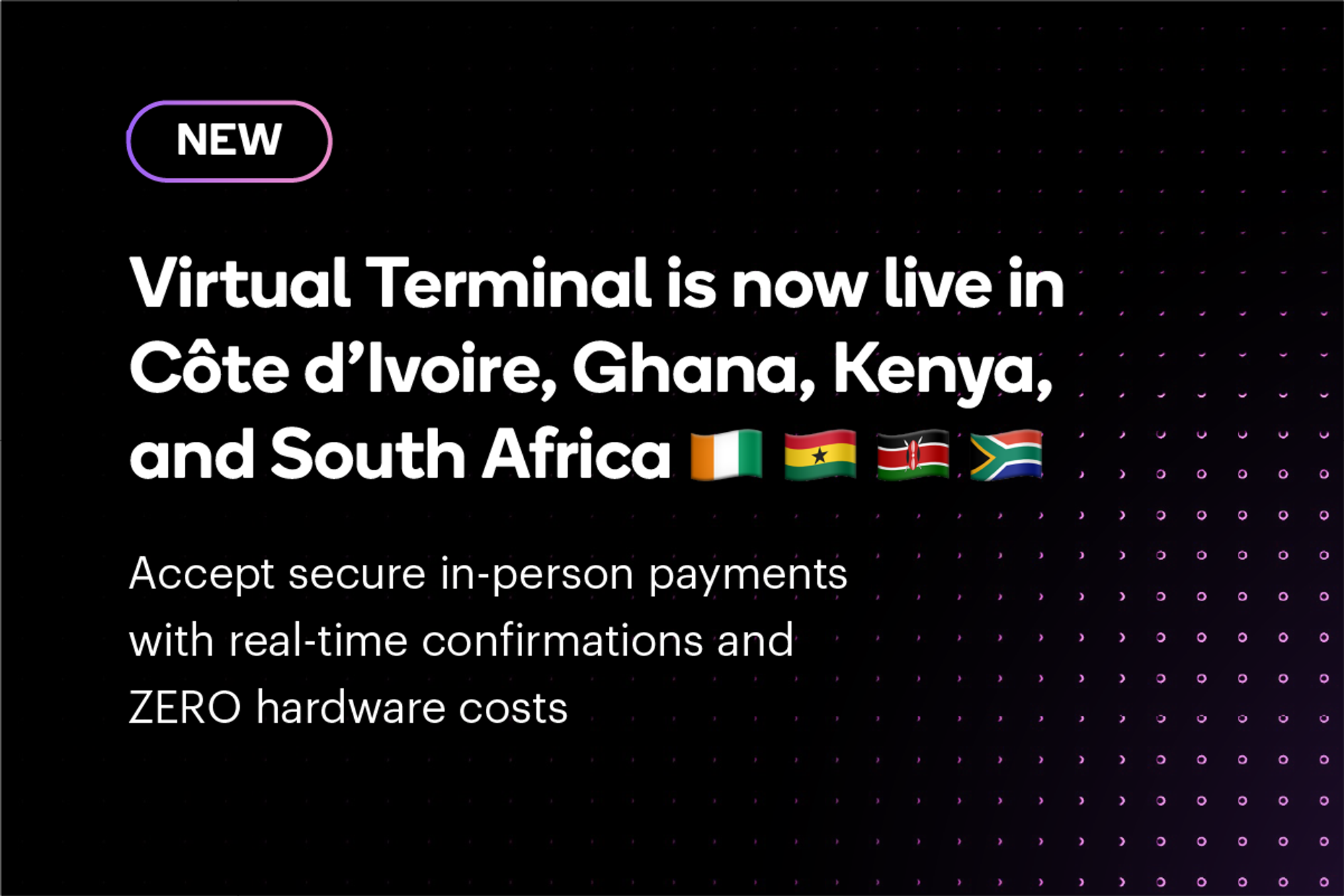
Paystack Virtual Terminalhelps businesses accept secure, in-person payments with real-time WhatsApp confirmations and ZERO hardware costs. Enjoy multiple in-person payment channels, easy end-of-day reconciliation, and more. Learn more on the Paystack blog →
Economy
Indonesia seeks $3.5 billion trade agreement with Africa
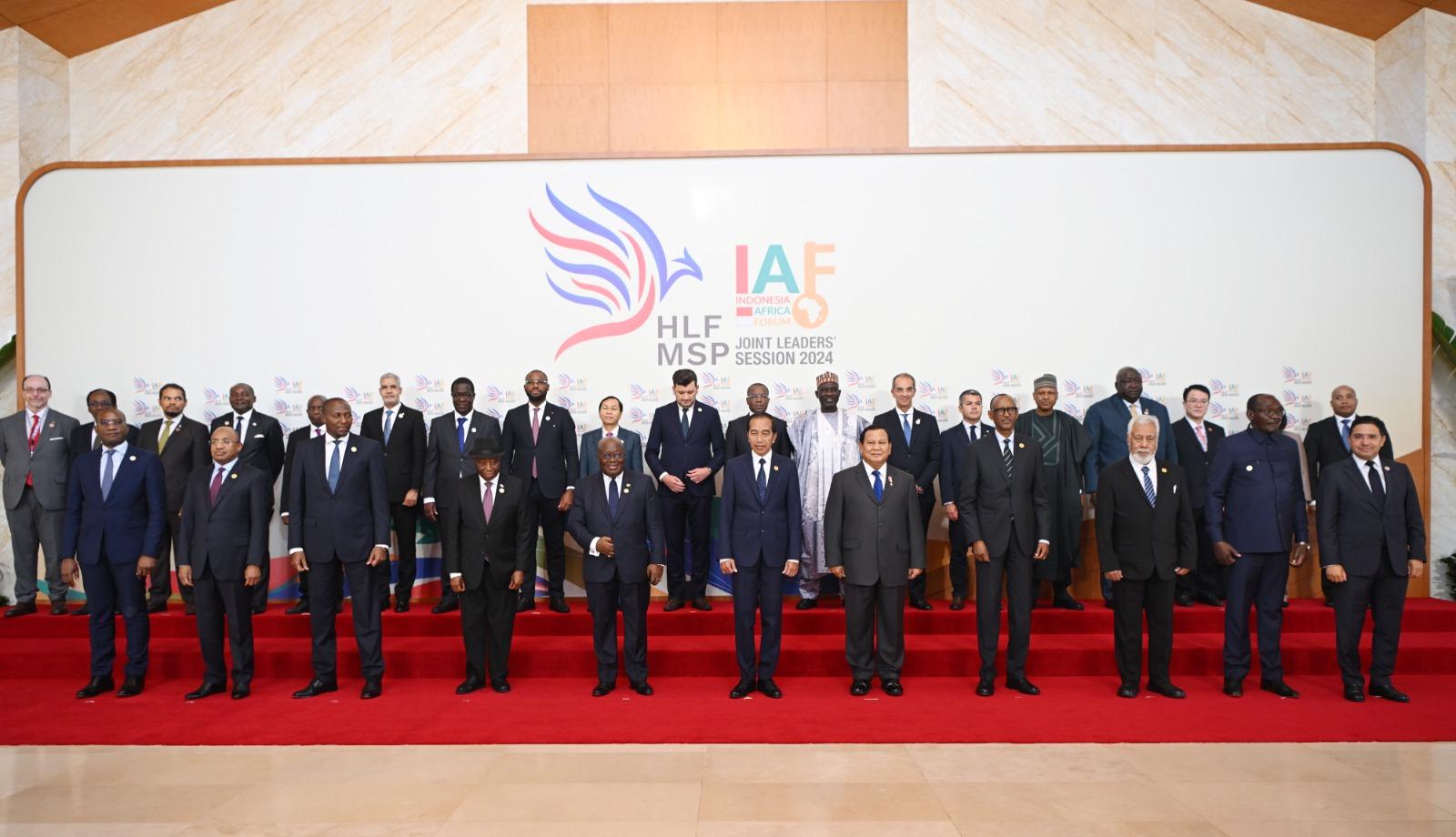
During the Indonesia-Africa Forum currently taking place in Bali, senior diplomats from the Asian country proposed that Indonesia seek a $3.5 billion trade agreement with African countries.
Indonesia is a well-known nickel exporter. With at least 50% of its nickel being exported, it is one of the world’s largest nickel exporters. However, that also constitutes a pain it has been trying to deal with.
Nickel is key for making batteries for electric vehicles (EVs). And Indonesia, knowing fully well that it cannot make EVs itself, opted to build hubs to make car batteries using its nickel.
Then the big EV companies came circling to invest in its smelting facilities. As at 2023, Indonesia had built 54 nickel smelting facilities, with 16 more under construction. Indonesia has since aggressively pursued its battery production goal.
This is why trade with Africa is important; it will collaborate with resource-rich African countries to import finishing minerals like lithium that, when used with nickel, can produce batteries that power EVs and other electronic devices.
Yet, there may be another reason. Most African countries are net importers of palm oil, one of Indonesia’s top exports. Due to the seasonal fluctuations, limited arable land resources, and farmers choosing to practice subsistence farming, the production of palm oil in Africa has been insufficient in the past. In 2020, African nations imported nearly 8 million tonnes of palm oil.
Prior to this agreement proposal, Indonesia did little business with Africa. However, with this development, Indonesia can export more of its top products to Africa, and import mineral resources to fuel its battery production drive. Then, it can export these finished goods back to Africa. The trade agreement in place will also secure better import duty rates for the Global South. It is yet to be seen if Indonesia has any production nous to pull this off.
Read the guide on how to build a fintech in Africa
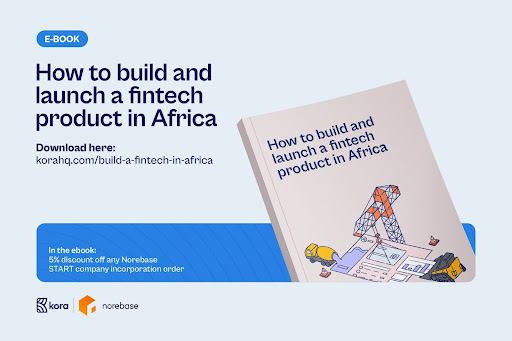
To build a fintech in Africa, you must navigate complicated regulatory regimes, incorporate in each market, get the right licences, and use the right technology stack. Kora and Norebase put everything you need to build in this guide. Check it out.
CRYPTO TRACKER
The World Wide Web3
Source:

|
Coin Name |
Current Value |
Day |
Month |
|---|---|---|---|
| $59,299 |
+ 2.69% |
– 2.29% |
|
| $2,532 |
+ 3.09% |
– 13.17% |
|
|
$5.24 |
+ 1.88% |
– 13.22% |
|
| $135.30 |
+ 5.65% |
– 5.55% |
* Data as of 06:30 AM WAT, September 3, 2024.
Events
- We’re excited to announce our partnership with Wimbart the second edition of their pioneering pan-African research publication, “Startup Performance Reporting in Africa”. This report will shed light on the intricacies of investor relations within the African tech ecosystem. If you’re a founder, take a couple of minutes to share some key insights with us by filling out this survey
- Resilience17 (R17) is launching an AI Accelerator to help ambitious globally focused teams build and launch AI products. The Go Time AI Accelerator is open to Nigeria-based companies. The accelerator offers up to $200k total investment with an initial $25k upfront (via SAFES with a $2.5m valuation cap), expert mentorship from industry veterans and technical gurus, technical and business growth support, access to API & Cloud credits, housing credits, delicious team meals, and a vibrant workspace in Victoria Island, Lagos. Apply by September 13.
- The Africa Prize for Engineering Innovation is open to African innovators creating engineering solutions to local challenges. Innovators from sub-Saharan Africa should pitch viable engineering products or services that will have social or environmental benefits to the continent. Apply for the chance to get up to $25,000 in funding.
- The Future of Capitalism Tech Startup Competition is offering $1 million to one lucky tech startup that can transform how businesses today operate. If your tech can save costs, boost efficiency, increase productivity or customer satisfaction, then apply by September 30 for a chance to win.

Written by:Olumuyiwa Olowogboyega & Emmanuel Nwosu
Edited by: Olumuyiwa Olowogboyega & Timi Odueso
Want more of TechCabal?
Sign up for our insightful newsletters on the business and economy of tech in Africa.
- The Next Wave: futuristic analysis of the business of tech in Africa.
- Entering Tech: tech career insights and opportunities in your inbox every Wednesday at 3 PM WAT.
- TC Scoops: breaking news from TechCabal
P:S If you’re often missing TC Daily in your inbox, check your Promotions folder and move any edition of TC Daily from “Promotions” to your “Main” or “Primary” folder and TC Daily will always come to you.






















